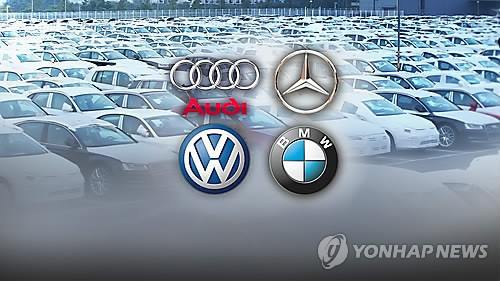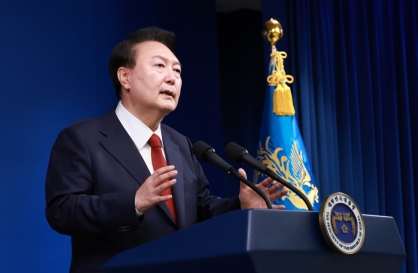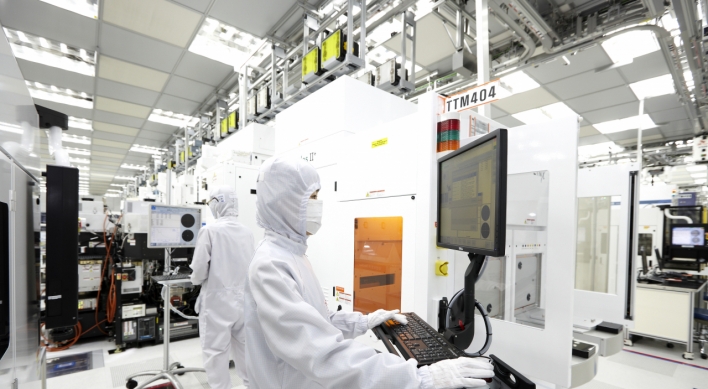Is imported car market losing steam?
Trend-savvy Korean consumers get bored with market dominant German car brands
By Shin Ji-hyePublished : May 15, 2016 - 14:47
Alarm bells are ringing in the imported foreign car market that has enjoyed double-digit on-year growth over the past six years, as sales have declined by 4 percent in January-April from the same period last year.
Industry watchers said the downward trend has resulted from weaker sales of the three German car brands which dominate the market, growing distrust of inconsistent vehicle pricing and a stricter law on taxation of company vehicles.
Among them, the slowdown of diesel-powered German car sales is seen as the biggest reason to drag down the entire imported car market, they noted. The once-voracious appetite for German cars appears to be cooling recently following Volkswagen’s diesel-emissions cheating scandal and Koreans are looking at wider options.

The combined sales of the top four German brands -- Audi, BMW, Volkswagen and Mercedes-Benz -- dropped 9 percent to 46,701 units from January to April on-year. By brand, except for Mercedes-Benz all the other German automakers saw a drop in sales.
“The fast-changing appetite of Korean consumers triggered the sales fall of German luxury cars. They started getting bored and are looking at other luxury brands. The removal of tariffs on the imported American brands (with the launch of the Korea-U.S. free trade agreement) and growing interest in Japanese hybrid cars may accelerate the trend,” said Kim Kyung-yoo, a researcher at Korea Institute for Industrial Economics & Trade.
The combined sales of Japan’s four brands -- Toyota, Infiniti, Honda and Nissan -- increased 5 percent to 7,223 units in the first four months. The U.S. imported car brand including Cadillac, Ford and British luxury carmaker Jaguar Land Rover all saw their sales pick up in the same period, although their sales figures are still meager compared to those of German brands.
Apart from the weaker sales of German cars, inconsistency in pricing of imported cars has brought about a growing distrust among local consumers, industry insiders said.
Consumers feel uneasy with irregular big discounts and inconsistent vehicle prices, led by the imported car dealers.
“The record-high sales of imported cars last year was partly due to the dealers’ excessive discounts, which ended up with different prices for the same car model. Bubbles may have been formed in the process of car sales,” said Kim Pil-soo, an automotive engineering professor at Daelim University in Anyang.
BMW Korea’s chief executive Kim Hyo-joon also said earlier this year that distrust, cutthroat competition and low aftersales service has hampered imported car sales here.
Other industry watchers said the recent launch of stricter tax rules on company vehicles may have played a role in the sales drop of imported vehicles.
According to the Korea Automobile Importers & Distributors Association, among the total imported luxury cars registered last year, around 40 percent of them were registered by companies.
The high portion came as top executives registered their personal luxury cars under their company names to get a higher tax deductible amount.
From this year, the government enforced a stricter law on taxation of company vehicles to close the loophole. The number of imported cars registered by companies dropped 19 percent to 26,000 from January to April, the KAIDA said.
‘‘It is time for foreign car brands to work together to win back customers’ trust for their continued growth,” professor Kim said.
By Shin Ji-hye (shinjh@heraldcorp.com)
Industry watchers said the downward trend has resulted from weaker sales of the three German car brands which dominate the market, growing distrust of inconsistent vehicle pricing and a stricter law on taxation of company vehicles.
Among them, the slowdown of diesel-powered German car sales is seen as the biggest reason to drag down the entire imported car market, they noted. The once-voracious appetite for German cars appears to be cooling recently following Volkswagen’s diesel-emissions cheating scandal and Koreans are looking at wider options.

The combined sales of the top four German brands -- Audi, BMW, Volkswagen and Mercedes-Benz -- dropped 9 percent to 46,701 units from January to April on-year. By brand, except for Mercedes-Benz all the other German automakers saw a drop in sales.
“The fast-changing appetite of Korean consumers triggered the sales fall of German luxury cars. They started getting bored and are looking at other luxury brands. The removal of tariffs on the imported American brands (with the launch of the Korea-U.S. free trade agreement) and growing interest in Japanese hybrid cars may accelerate the trend,” said Kim Kyung-yoo, a researcher at Korea Institute for Industrial Economics & Trade.
The combined sales of Japan’s four brands -- Toyota, Infiniti, Honda and Nissan -- increased 5 percent to 7,223 units in the first four months. The U.S. imported car brand including Cadillac, Ford and British luxury carmaker Jaguar Land Rover all saw their sales pick up in the same period, although their sales figures are still meager compared to those of German brands.
Apart from the weaker sales of German cars, inconsistency in pricing of imported cars has brought about a growing distrust among local consumers, industry insiders said.
Consumers feel uneasy with irregular big discounts and inconsistent vehicle prices, led by the imported car dealers.
“The record-high sales of imported cars last year was partly due to the dealers’ excessive discounts, which ended up with different prices for the same car model. Bubbles may have been formed in the process of car sales,” said Kim Pil-soo, an automotive engineering professor at Daelim University in Anyang.
BMW Korea’s chief executive Kim Hyo-joon also said earlier this year that distrust, cutthroat competition and low aftersales service has hampered imported car sales here.
Other industry watchers said the recent launch of stricter tax rules on company vehicles may have played a role in the sales drop of imported vehicles.
According to the Korea Automobile Importers & Distributors Association, among the total imported luxury cars registered last year, around 40 percent of them were registered by companies.
The high portion came as top executives registered their personal luxury cars under their company names to get a higher tax deductible amount.
From this year, the government enforced a stricter law on taxation of company vehicles to close the loophole. The number of imported cars registered by companies dropped 19 percent to 26,000 from January to April, the KAIDA said.
‘‘It is time for foreign car brands to work together to win back customers’ trust for their continued growth,” professor Kim said.
By Shin Ji-hye (shinjh@heraldcorp.com)
-
Articles by Shin Ji-hye









![[K-pop’s dilemma] Time, profit pressures work against originality](http://res.heraldm.com/phpwas/restmb_idxmake.php?idx=644&simg=/content/image/2024/05/08/20240508050705_0.jpg&u=20240508171126)









![[Today’s K-pop] Stray Kids to drop new album in July: report](http://res.heraldm.com/phpwas/restmb_idxmake.php?idx=642&simg=/content/image/2024/05/09/20240509050659_0.jpg&u=)